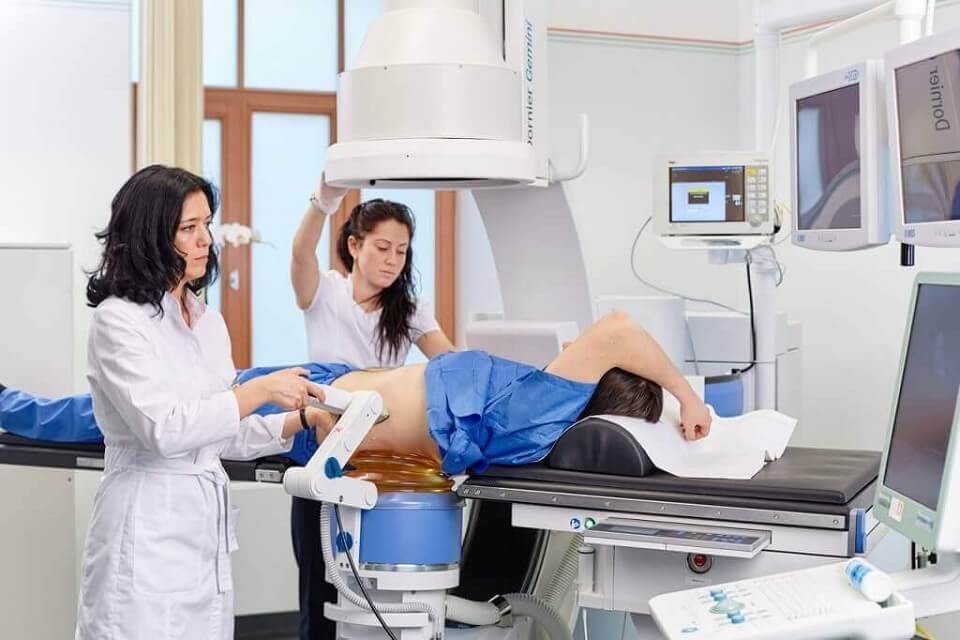
Lithotripsy Machine
Lithotripsy is an alternate procedure other than surgery to get rid of Kidney, Uretor and Gall Bladder stones.
Lithotripsy is a procedure that uses shock waves to break up stones in the kidney, bladder, or ureter (tube that carries urine from your kidneys to your bladder). After the procedure, the tiny pieces of stones pass out of your body in your urine.
Description
To get ready for the procedure, you will put on a hospital gown and lie on an exam table on top of a soft, water-filled cushion.
You will be given medicine for pain or to help you relax before the procedure starts. You will also be given antibiotics
When you have the procedure, you may be given general anesthesia for the procedure. You will be asleep and pain-free.
High-energy shock waves, also called sound waves, will pass through your body until they hit the kidney stones. If you are awake, You may feel a tapping feeling when this starts. The waves break the stones into tiny pieces.
The lithotripsy procedure should take about 45 minutes to 1 hour.
A tube may be placed through your bladder or back into your kidney. This tube will drain urine from your kidney until all the small pieces of stone pass out of your body. This may be done before or after your lithotripsy treatment.
Why the Procedure is Performed
Lithotripsy is used to remove kidney stones that are causing:
-
Bleeding
Damage to your kidney
Pain
Urinary tract infections
Not all kidney stones can be removed using lithotripsy. The stone may also be removed with:
-
A tube (endoscope) inserted into the kidney through a small surgical cut.
A small lighted tube inserted through the bladder into ureters. Ureters are the tubes that connect the kidneys to the bladder.
Open surgery (rarely needed)
Risks
Lithotripsy is safe most of the time. Talk to your doctor about possible complications such as:
-
Bleeding around your kidney, which may need a blood transfusion
Kidney infection
Pieces of the stone block urine flow from your kidney (this may cause severe pain or damage to your kidney)
Pieces of stone are left in your body (you may need more treatments)
Ulcers in your stomach or small intestine
Problems with kidney function after the procedure
Before the Procedure
Always tell your doctor or nurse:
-
If you are or could be pregnant
What drugs you are taking, even drugs, supplements, or herbs you bought without a prescription
During the days before the surgery:
-
You may be asked to stop taking aspirin, ibuprofen (Advil, Motrin), warfarin (Coumadin), and any other drugs that make it hard for your blood to clot. Ask your doctor when to stop taking them.
Ask your doctor which drugs you should still take on the day of the surgery.
On the day of your procedure:
You may not be allowed to drink or eat anything for several hours before the procedure.
Take the drugs your doctor told you to take with a small sip of water.
-
Your doctor or nurse will tell you when to arrive at the hospital.
After the Procedure
After the procedure, you will stay in the recovery room for up to about 2 hours. Most people are able to go home the day of their procedure. You will be given a urine strainer to catch the bits of stone passed in your urine.
Outlook (Prognosis)
How well you do depends on the number of stones you have, their size, and where in your urinary system they are. Most of the time, lithotripsy removes all the stones.
